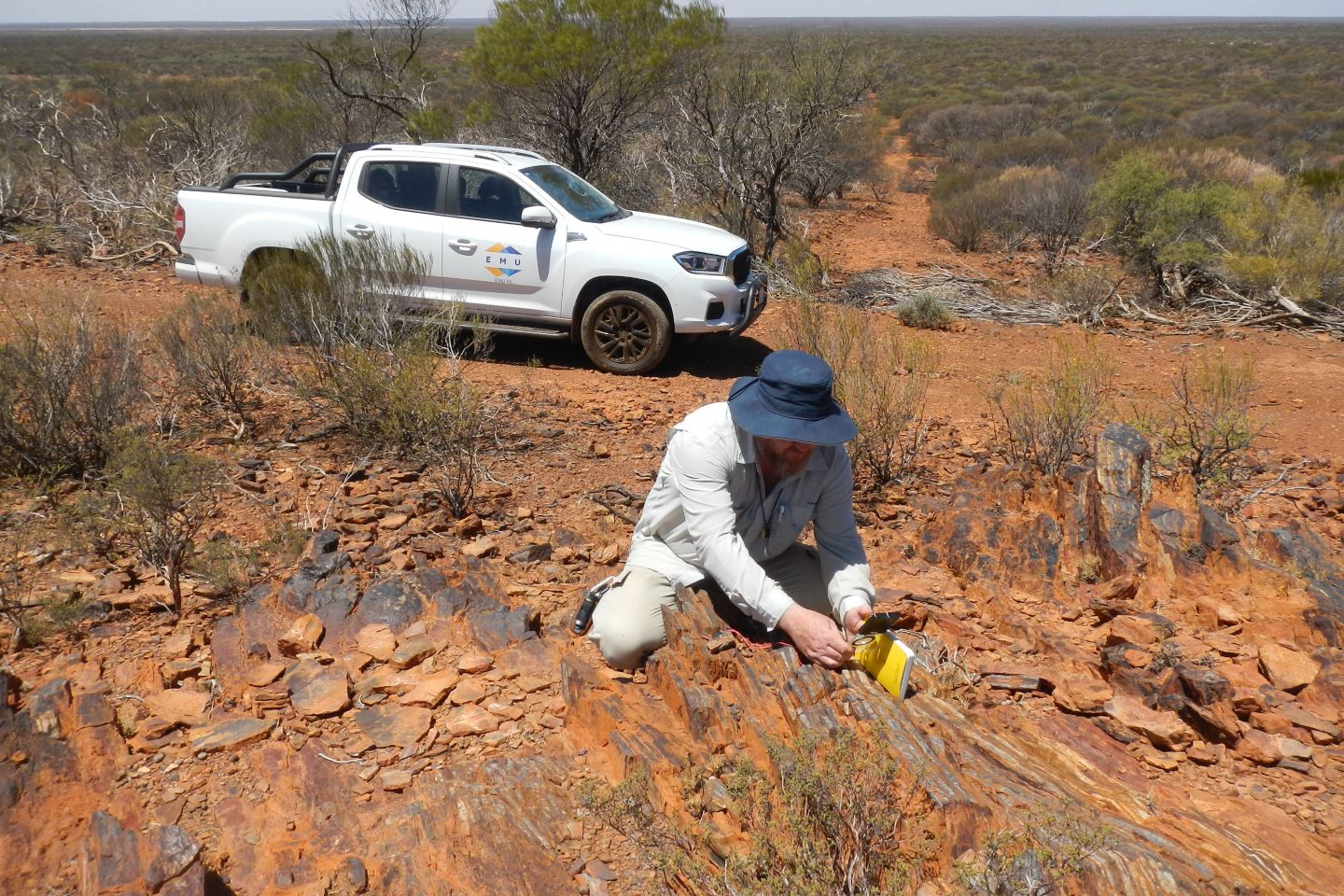Emu NL has discovered a new rare earths region in WA’s Great Southern town of Jerramungup, 450km south-east of Perth. Emu has revealed significant mineralisation from 20m to 52m thick and up to 1138 parts per million total rare earths oxide (TREO) within basement granitoids and adjacent clay zones in a five-hole drill campaign at project Viper. The longest intersection was 52m at 542ppm TREO.


A new rare earths zone appears to be emerging in Western Australia’s Great Southern region, with Emu NL reporting an intriguing discovery in the town of Jerramungup, 450km south-east of Perth.
The company says it found significant rare earths mineralisation in a maiden five-hole drill campaign at its project known as Viper, while drilling around the historic Netty mine looking for copper and precious metals. It says it found mineralisation from 20m to 52m thick within basement gneiss, granite-gneiss and adjacent clay zones.
The best drill result was 52m at 542 parts per million total rare earths oxide (TREO), including 28m grading 648ppm TREO, but all holes ended in rare earths mineralisation.
Management is now undertaking studies to vector in on what it predicts will be higher-grade clay-hosted rare earths mineralisation in its next drilling program.
Emu believes the results point to the discovery of a new rare earths region and has immediately rushed to peg an additional 120 square kilometres of the most prospective ground, bringing the project to a total of 242sq km. Surface rock samples from the newly-pegged ground gave highly-anomalous rare earths results.
Highlight results from the company’s 4m composite drill samples at Viper include 40m at 439ppm TREO from 28m, 20m grading 654ppm TREO from surface, including 4m at 1138ppm from 16m, and 52m going 542ppm TREO, including 28m grading 648ppm from 4m downhole.
Emu says rare earths readings of up to 381ppm TREO in all holes indicate mineralisation of the underlying basement rocks. Across the drill program, magnetic rare earths oxide averaged 29.4 per cent of TREO, while heavy rare earths oxide averaged 15.6 per cent. Results between 271ppm and 567ppm TREO were also found in 33 surface granitoid rock samples.
The drilling program was conducted in November last year to test electromagnetic conductors and anomalous nickel and copper geochemistry in the vicinity of the historic Netty copper mine, which produced more than 30 tonnes of ore at a grade of more than 10 per cent. Previous underground channel sampling at Netty by Audax gave copper values from 3 to 14 per cent and up to 0.5 per cent nickel.
Emu seems to be so excited by its rare earths discovery that it has not yet reported any copper assays.
Emu chairman Peter Thomas said: “The assay results taken from rock chip samples and 5 RC drill holes at Viper have led EMU to declare a REE project discovery. The results are highly anomalous and encouragingly exhibit thick mineralised zones throughout the length of drill holes. We are extremely encouraged that the samples taken from outcropping rocks over the wider project area have all reported anomalous REE mineralisation.”
Emu’s conceptual mineralisation model shows clay-hosted rare earths enrichment overlaying the adjacent granite–gneiss rock. The anomalous rare earths results were recorded both in the saprolite clay layers and underlying basement hard rock.
The company says mineralisation was encountered through broad zones in all drill holes and it expects to identify higher rare earths supergene concentrations in clay-zone enrichment traps overlying and adjacent to the fertile granites. Assay results from the drilling at Viper are from 4m composite samples and Emu believes it will receive higher TREO grades from individual 1m sample splits.
Management is now planning follow-up air-core extensional drilling through the main portion of the mineralisation zones, with the aim of increasing their overall strike, width and depth. It has commissioned geophysicists to review open-source data to help identify the postulated clay-zone enrichment trap sites and deeper weathered zone targets. The consulting geophysicists will test and refine these targets with field-based passive seismic survey.
Emu also holds ground in the newly-identified Esperance rare earths province and it has moved quickly to pick the eyes out of its surrounding prospective Jerramungup ground with new tenement applications.
If the targets to be identified by the geophysicists come up trumps, this could launch Emu into a new space.
Is your ASX-listed company doing something interesting? Contact: matt.birney@businessnews.com.au













